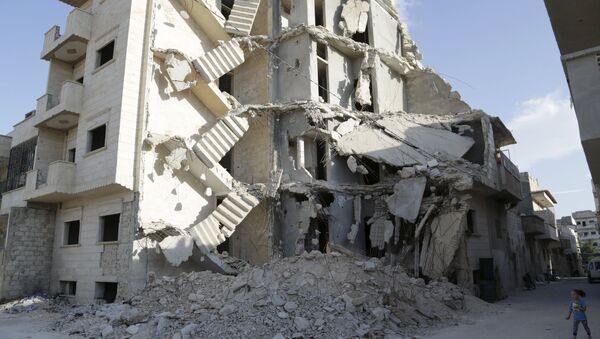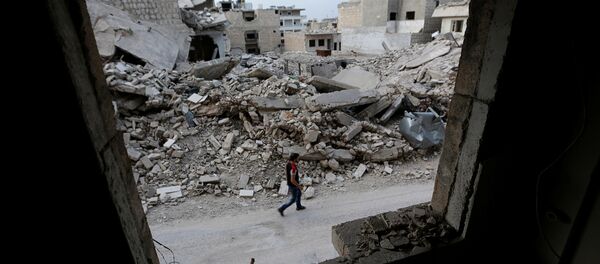ANKARA (Sputnik) — On August 6, Russian Foreign Minister Sergei Lavrov said that work on setting up the fourth Syrian de-escalation zone in the province of Idlib is underway, however, certain difficulties remain.
"As for the situation with Idlib, negotiations continue, our intelligence has close contacts with Russia and with Iran. Concerning Idlib, the talks were positive, and I think that within the framework of the constantly negotiated negotiations with Moscow and with Tehran, we will be able to quickly come to a solution to this situation," Erdogan told reporters.
The agreement on establishing four Syrian safe zones was reached during the talks on Syrian reconciliation in Astana in May. On August 3, Russian Defense Ministry spokesman Maj. Gen. Igor Konashenkov said the representatives of the Russian Defense Ministry and moderate Syrian opposition reached an agreement during their meeting in Cairo on July 31 on the third de-escalation zone in Syria, north of Homs.
The ceasefire regime within the zones is expected to facilitate access of humanitarian missions to the regions, create conditions for the restoration of infrastructure in the conflict-torn areas and encourage refugees and internally displaced people to return to their homes.
The ceasefire in Syrian de-escalation zones does not cover the militants of the Jabhat Fatah al Sham, formerly known as Nusra Front, and Daesh terrorist groups.
Last Saturday, a member of Syria's Tomorrow opposition movement told Sputnik that the efforts of Russia and Egypt will possibly make Syria's northwestern Idlib province the next stage of de-escalation in the country after the province of Homs.




